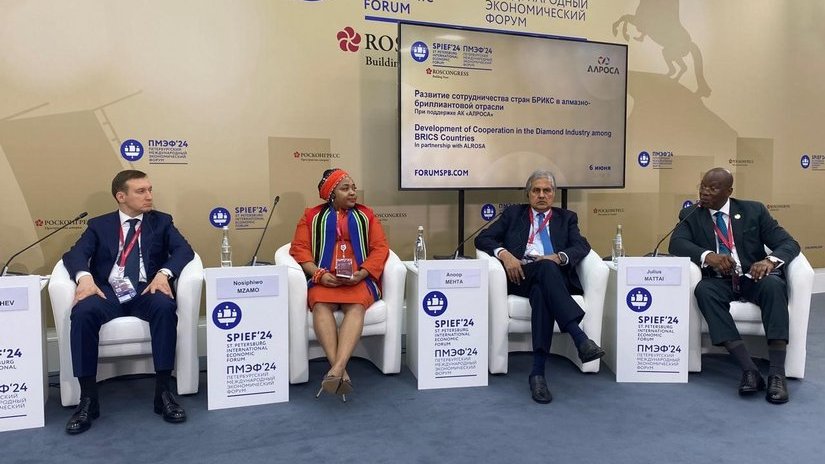As part of Russia’s BRICS chairmanship, a round table Development of Cooperation Between the BRICS Countries in the Diamond Industry was held on June 6 at the St. Petersburg International Economic Forum, at which an agenda was formed for equal and fair interaction between the participants in all segments of the international diamond trade. The round table attendees discussed the issues of sustainable development of the global diamond industry, maintaining the market stability, and the decisive role of the BRICS countries. Among other issues, the challenges were discussed like creating new forms of direct cooperation between diamond-mining and diamond-manufacturing centers, promoting natural polished diamonds and demand for them in the growing consumer markets, as well as ensuring access for rough diamonds to the supply chains.

The Kimberley Process Certification Scheme (KPCS), a universal mechanism for regulating the global diamond trade, has recently been undermined due to more frequent introduction of unilateral obstacles to trade by a number of countries. In the conditions of low demand in many markets, this has a negative impact on the economies of a number of market players. This mainly relates to diamond-mining and diamond-manufacturing countries, including the members of the BRICS group, which collectively account for more than 35 percent of the world GDP at purchasing power parity. In the coming years, the potential growth of their economies is expected to affect the jewelry consumption. Therefore, it is important for the global diamond market stakeholders to discuss new forms of interaction, the principles of free trade in diamond goods and support to diamond-mining countries in Africa.
“In the BRICS space, the interests of all participants can be united, including the large diamond-mining countries with commercial development of deposits, the countries with predominantly artisanal alluvial diamond mining, the centers of diamond trade, polished diamond and jewelry manufacture, and the growing markets for finished goods distribution. New cooperation mechanisms will ensure the stability of the global diamond market and preserve the system of free global trade in diamond goods based on the fundamental principles of the Kimberley Process,” ALROSA’s CEO Pavel Marinychev emphasized in his speech.
“We are extremely interested in maintaining a balance in the global diamond market. In the context of unilateral illegal restrictions imposed by certain Western countries on the Russian-origin rough diamonds, it is very important for us to support the ALROSA’s efforts aimed at diversifying the international supply markets. This will allow maintaining the sustainable social and economic development of Yakutia,” noted Aisen Nikolaev, Head of Yakutia, in his speech. “We see great prospects for expanding cooperation in the diamond industry in the exchange of experience and technology, joint research and development, the creation of joint ventures, as well as in investments and marketing strategies. These and other cooperation measures can help strengthen mutual understanding and increase the competitiveness of the BRICS countries’ diamond industry in the global market along the entire value-added chain.”
The round table participants stated that it is of central importance for the entire global industry that the markets of the BRICS countries remain open to free diamond trade based on the universal principles of the Kimberley Process Certification Scheme. At the same time, industry standards for responsible diamond mining should be developed directly by diamond-mining countries and companies.
Galina Semyonova for Rough&Polished, St. Petersburg
